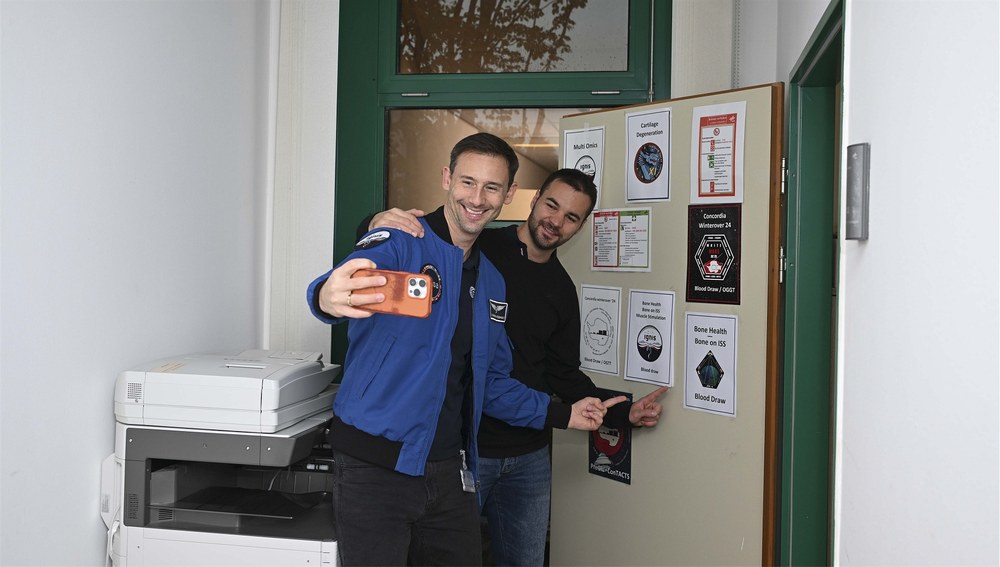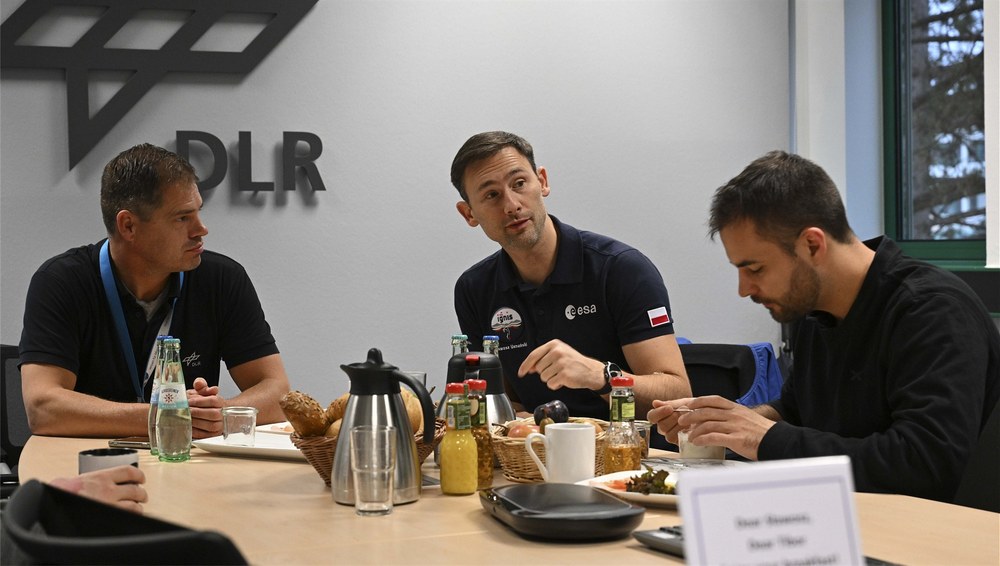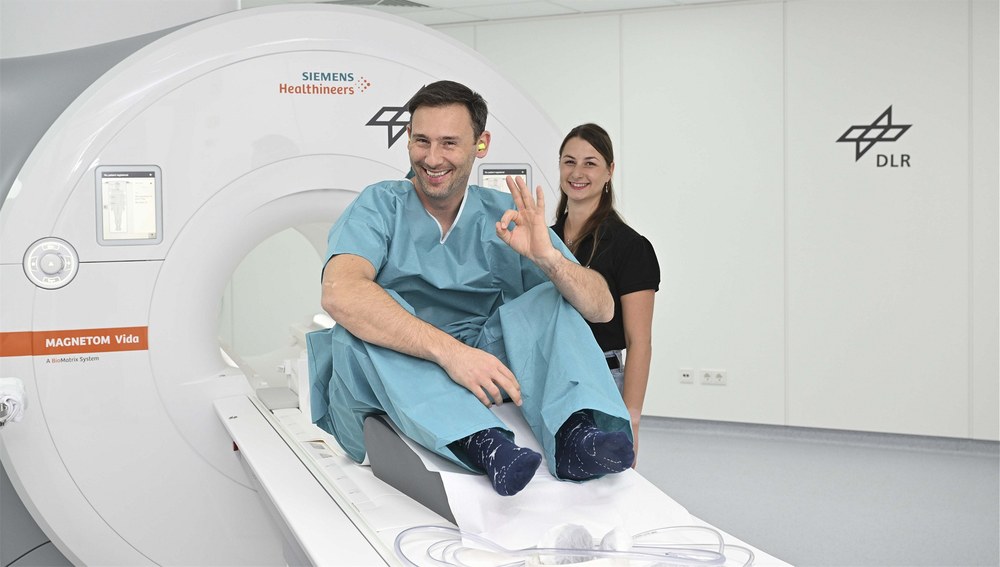Axiom Mission 4 astronauts Sławosz Uznański-Wiśniewski and Tibor Kapu at DLR Institute of Aerospace Medicine



- Two Axiom Mission 4 crew members back at the Institute of Aerospace Medicine for scientific data collection after their stay on the ISS.
- Official completion of data collection for all scientific experiments of the Axiom Mission 4.
- Focus: Space medicine, human spaceflight, research in microgravity, international cooperation
In the era of commercial spaceflight, the DLR Institute of Aerospace Medicine remains invaluable to space-faring nations and institutions, by providing state-of-the-art infrastructure and expertise management as well as science support for preparation and aftercare and scientific development of space missions. :envihab is a high-tech research facility, unique in Germany and Europe, where the DLR Institute of Aerospace Medicine carries out pioneering research and plays an essential role in supporting human space missions.
A few days ago, ESA project Astronaut Sławosz Uznański-Wiśniewski from Poland and HUNOR Astronaut Tibor Kapu from Hungary participated in important post-flight science data collection at the DLR Institute of Aerospace Medicine. It was simultaneously a welcome reunion, as the two Axiom-4 crew member had not seen each other only once since their paths parted after their Axiom Mission 4 ended by landing off the coast of San Diego, California on July 15, 2025. Whilst Uznański-Wiśniewski was flown straight to Europe (to the European Astronaut Center and the DLR’s :envihab facility) to participate in the post-flight data collection and to undergo medical evaluation and rehabilitation, Kapu remained at the headquarters of Axiom Space in Houston, Texas for four weeks to do the same.
The visit at the Institute, however, also embarked another milestone: the date collection for all science experiments for the Axiom Mission 4 officially came to an end! Both Sławosz Uznański-Wiśniewski and Tibor Kapu performed the final assessments for the ESA-selected DLR Bone Health experiment, which seeks to explore the existence or non-existence of post re-entry bone loss in short duration missions and whether the divergence or non-divergence of this loss is explained by differences in cellular bone dynamics. Data collection includes urine collection, blood sampling and bone mineral density measurements.
Both astronauts also closed out the ESA-selected Human Gut Microbiome project. This project investigates the effects of short-term stays in low Earth orbit on astronaut health by examining changes in the human gut microbiome. Stool samples were collected at regular intervals before, during, and after flight and the microbiome composition was analyzed. Changes in microbiome composition could impact the health of future crews, so this research can help inform dietary or medical treatments for crew in future. The research could also lead to improved management of gut-related conditions on Earth and development of personalized nutrition programs.
Furthermore, Uznański-Wiśniewski finished the data collection for the ESA-selected Bone on ISS experiment, which, next to blood, urine collection and regular bone mineral density measurements, required a visit to the VieCuri Medical Center in Venlo, the Netherlands, where high-resolution images were obtained from the ankle and wrist.
Uznański-Wiśniewski also conducted the Cardio Deconditioning experiment, which uses Cardiovascular Magnetic Resonance Imaging (CMR) as a unique tool to establish a standardized database on the cardiovascular status of the current astronaut pool before and after their space missions. Comparing existing data from head-down bed rest and low-Earth orbit missions will help to separate acute from chronic and structural from functional changes, and in the longer-term isolate effects caused by the duration of spaceflight, from exposure to deep space exploration mission or simply by aging.
